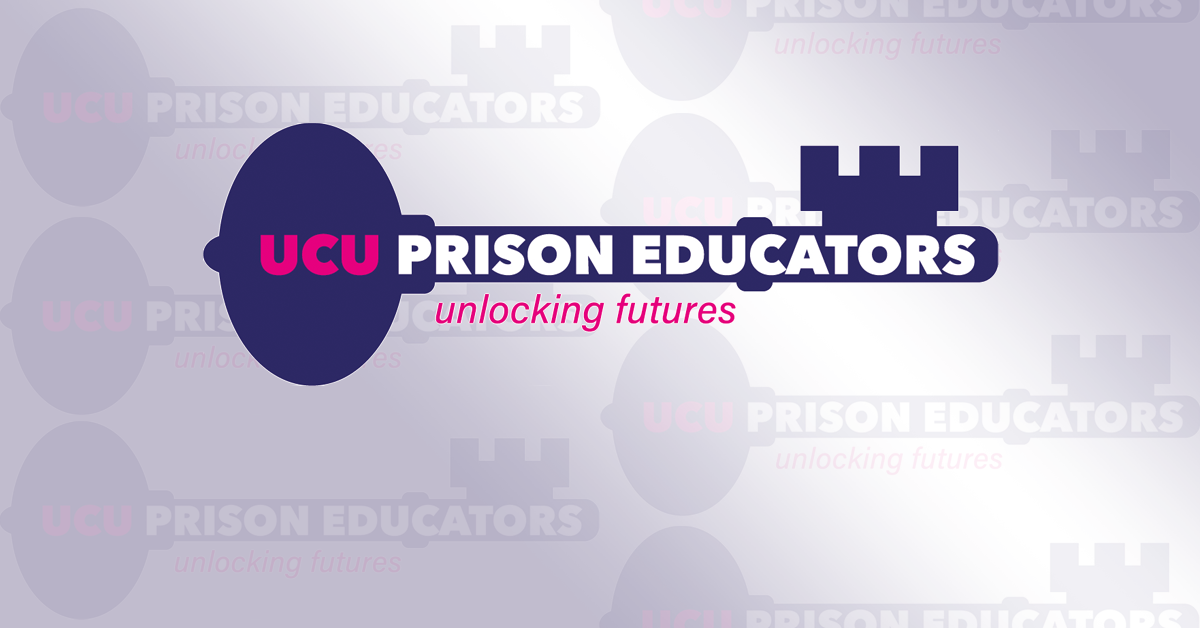Prison educators suffering from high levels of stress
25 March 2013
Education staff who work in prisons have considerably higher levels of work-related stress than British workers in general, a new report commissioned by UCU has found.
The report, A Punishing regime - a survey of occupational stress and well-being among prison educators, released today (Friday), found that 72% of prison educators who responded, 'strongly agreed' or 'agreed' with the statement, 'I find my job stressful'.
The report*, to be launched at a meeting of prison educators from across the UK in London today, paints a bleak picture of life for staff who have been subject to repeated contractual changes but felt they lacked adequate managerial support, have experienced fraught relationships with colleagues, and have not had enough clarity over their roles.
The report found stress related to employees' level of control at work, and clarity about their role, had got worse since a comparable survey was carried out by UCU in 2008.
UCU general secretary, Sally Hunt, said: 'The findings of this report suggest the constant change caused by government retendering prison education contracts and changing the curriculum has put unacceptable pressure on our prison educators.
'UCU has been calling for an end to all this uncertainty and instability. That combined with more permanent contracts, improved working facilities and better support from line managers will mean our members in prisons can focus on the job of educating prisoners and most crucially, reducing their chances of reoffending on release.
'Prison educators have emerged as far more stressed out than the average worker, and are reporting more stress than other post-16 education professionals in many aspects of their work. That is why UCU has been campaigning recently for employers to take steps to safeguard the well-being of their employees, and working with employers to control workloads.'
Through the use of a standard Health and Safety Executive questionnaire, the report clearly pinpoints the major drivers of stress as change, relationships, role clarity and management support. Prison educators' stress related to these areas is higher than levels for colleagues working in other areas of post-16 education, and higher than the British workforce in general.
The Health and Safety Executive questionnaire measured prison educators on seven stressors at work**. Respondents rated a series of statements relating to each stressor. Those responses were then translated into a numerical score, ranging from 1 for high stress (described as low well-being) to 5 for low stress (high well-being). In each of the seven stressors, prison educators showed higher stress levels and lower well-being than the British workforce as a whole.
The report's key findings included:
- On all of the Health and Safety Executive stressor categories, UCU members in prison education reported higher stress (lower well-being) than the average for those working in the HSE target group industries. The biggest 'well-being gaps' related to change management, relationships, role clarity and management support. The work-life balance of UCU members from prison education was generally poor.
- The majority of respondents (61%) indicated that they were generally unable to set a firm boundary between their work and home life. Those who had a poorer work-life balance typically reported higher levels of work-related stress.
Notes
*A Punishing Regime - a Survey of Occupational Stress and Well-Being among Prison Educators by Gail Kinman and Siobhan Wray
Dr Gail Kinman is Professor of Occupational Health Psychology at the University of Bedfordshire; Siobhan Wray is a PhD Researcher at the University of Bedfordshire
**The HSE has developed a self-report survey instrument to help employers measure the key hazards within their organisations and compare their performance with national standards. The HSE Indicator Tool (Cousins, Mackay, Clarke, Kelly, Kelly & McCaig, 2004) comprises 35 items within the seven hazard categories:
- Demands includes workload, pace of work and working hours;
- Control measures levels of autonomy over working methods, as well as pacing and timing;
- Peer Support encompasses the degree of help and respect received from colleagues;
- Managerial Support reflects supportive behaviours from line managers and the organisation itself, such as the availability of feedback and encouragement;
- Relationships assesses levels of conflict within the workplace including bullying behaviour and harassment;
- Role examines levels of role clarity and the extent to which employees believe that their work fits into the overall aims of the organisation;
- Change reflects how well organisational changes are managed and communicated.
The report is part of UCU's workload and stress campaign. Download A Punishing Regime here
- PrintPrint this page
- Share



